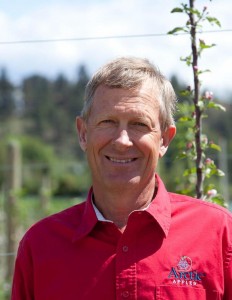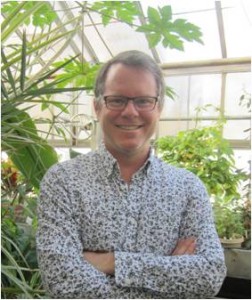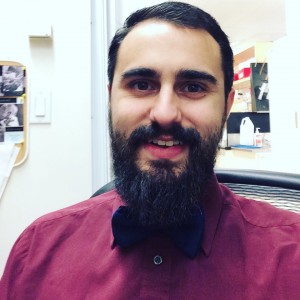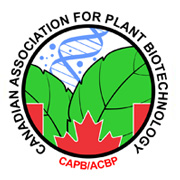Check out the conference schedule >>>
The conference program included sessions on in vitro biology, molecular farming, epigenetics, gene editing, and market acceptance and benefits of biotechnology, with a concluding session on cannabis research. The following are confirmed keynote speakers.

Plant tissue culture: Looking inside and outside the box
Dr. Praveen Saxena is a Professor in the Department of Plant Agriculture, University of Guelph. His research is focused on the study of regulatory signals that control morphogenesis in vitro and the application of in vitro technologies for plant conservation and production of value-added products for the Canadian agricultural and horticultural industries. His biotechnology-based conservation program aims to develop an interdisciplinary platform for research, education, and service to prevent the loss of plant species valuable to life on earth.

Dr. Stuart Smyth is an Assistant Professor in the Department of Agriculture and Resource Economics at the University of Saskatchewan, where he holds the Industry Research Chair in Agri-Food Innovation. His research focuses on sustainability, agriculture, innovation and food. Dr. Smyth publishes a weekly blog on these topics at: www.SAIFood.ca. Recent publications include an authored book with William Kerr and Peter Phillips, Biotechnology Regulation and Trade (2017); a co-edited book with Nicholas Kalaitzandonakes, Peter Phillips and Justus Wesseler, The Coexistence of Genetically Modified, Organic and Conventional Foods (2016); and a co-editor book with Peter Phillips and David Castle of the Handbook on Agriculture, Biotechnology and Development (2014). In the summer of 2015, Dr. Smyth was part of a large group of scientists at the University of Saskatchewan that received $37 million targeted towards designing crops that will improve global food security.

Development and application of genome editing tools in grass plants
Dr. Bing Yang, Associate Professor, Plant Biology, Iowa State University. Bing received PhD degree in plant pathology at Kansas State University. His research interest focuses on 1) development and application of TALEN and CRISPR technologies for targeted genome editing in plant species, and 2) molecular mechanism of plant/microbe interactions and crop disease resistance engineering by using the bacterial blight of rice as a model. For the past 20 years, he has identified and characterized several important naturally occurring TAL effectors in the rice pathogen Xanthomonas oryzae for their disease promoting ability, and most recently he has helped harness the disease-causing TAL effectors for targeted gene editing. His group has generated the first disease resistant crop plant by using the TALEN technology.

Biosimilar antibody production in plants
Dr. Michael D. McLean, Director of Research PlantForm Corporation
McLean was born and raised in St. Catharines, Ontario. He has undergraduate degrees from Brock and McMaster Universities, and a M.Sc. from Florida Atlantic University. He studied under Professor Richard B. Meagher at the University of Georgia, earning a Ph.D. in genetics in 1989 for research that produced the first molecular map of the Petunia genome. He was a post-doctoral fellow at the Children’s Hospital of Eastern Ontario in Ottawa, working on identification of genes associated with human spinal muscular atrophy. Afterward, he developed a system for producing therapeutic proteins in plants with Professor J. Christopher Hall at the University of Guelph. Both Hall and McLean are scientific co-founders of PlantForm Corporation. McLean has worked on numerous patents and published over 50 scientific papers and chapters

Plant natural products from synthetic biology
Dr. Vincent Martin is a Professor of Biology at Concordia University where he currently holds the Concordia University Research Chair in Microbial Engineering and Synthetic Biology. His research is focused in two principal areas: The bio-production of commodity chemicals from plant biomass and the bio-production of high value pharmaceuticals. In 2012 he founded and is now Co-Director of the Concordia Centre for Applied Synthetic Biology, Canada’s only research centre focused on synthetic biology, also home to The Genome Foundry, a unique technology platform that aspires to accelerate the design-build-test cycle of biological engineering. Prof Martin is a founder of the biotech company Amyris Inc, which was based on his postdoctoral research at UC Berkeley. He has a BSc from McGill University and PhD from the University of British Columbia. In 2014 he was elected to the Royal Society of Canada, College of New Scholars, Artists and Scientists.

Uncovering epigenetic variation in plants
Dr. Steve Robinson is a Research scientist with AAFC-Saskatoon. Prior to joining AAFC, he studied genetics at the University of Birmingham before moving to Norwich to complete a PhD in Brassica genetics working at the John Innes Centre. Steve’s research focuses on polyploid crops where he uses genomics and bioinformatics approaches to examine chromatin structure and the effect it has on gene regulation. His group are in interested in generating new variation through interspecific hybridizations and induced polyploidy to support crop improvement strategies and are examining the potential of epigenetic variation.

Neal Carter, P.Eng, is the president and founder of Okanagan Specialty Fruits Inc. (OSF), a dynamic agriculture biotechnology company specializing in the creation of novel tree fruit varieties. OSF’s flagship project, non-browning Arctic® apple varieties, recently became the first genetically engineered apples to be commercially approved in the U.S. and Canada. Outside of OSF, Neal grows and packs apples and cherries at his orchard in British Columbia’s beautiful Okanagan Valley. For over 30 years Neal has worked with numerous crops as a bioresource engineer around the globe in over 50 countries, ranging from maize to mango, from growing to harvesting, packing, storage, processing and packaging. It was through this firsthand experience that Neal was persuaded that biotechnology can help agriculture meet ever-expanding global food demand.

Dr. Erin Gilchrist is a Senior Scientist at Anandia Laboratories, a Vancouver-based cannabis testing and genetics company. She has a PhD in Genetics from the University of British Columbia, and worked on large-scale reverse genetics and genomics projects in canola and Arabidopsis prior to joining Anandia Labs. Dr. Gilchrist is using new and established technologies to explore the genome of Cannabis sativa in order to elucidate gene function in both hemp and medical-type cannabis. She is interested in the genetic control of metabolite production, including the biosynthesis of cannabinoids and terpenes, and how genetic variation contributes to the phenotypic diversity of these plants.

Biochemical genomics as a platform for gene discovery in Cannabis sativa and other medicinal plants
Jake Stout has studied the genetic control and biochemistry of specialized metabolism in plants for over fifteen years. His PhD work identified the role of the Mediator complex in the control of phenylpropanoid metabolism in Arabidopsis, and his subsequent work as a postdoctoral fellow at the National Research Council of Canada identified key genes that operate in the biosynthesis of cannabinoids in Cannabis sativa. He currently holds an assistant professor position at the University of Manitoba, where his lab is focused on elucidating the biosynthetic pathway of monoterpene indole alkaloids in Tabernanthe iboga and piper alkaloids in Piper spp.

Phytocannabinoid Pharmacology: the little we do know and the considerable amount to come
Dr. Robert Laprairie was born and raised in Saskatoon. He worked at Agri-food and Agriculture Canada for 4 years and completed a Bachelor’s of Science in Biochemistry at the U of S. He went on to complete a Master’s in Neuroscience and Pharmacology and a Doctorate in Pharmacology at Dalhousie University, followed by a postdoctoral research fellowship at The Scripps Research Institute. He is now back home as Assistant Professor and GlaxoSmithKline Research Chair in Drug Discovery and Development in the College of Pharmacy and Nutrition at the U of S. Robert’s research focuses on understanding the body’s own cannabinoid system and specifically the type 1 cannabinoid receptor. His research utilizes molecular biology, cell culture, and animal models to study your body’s cannabinoid system in an attempt to further our understanding of Cannabis as a medicine, and possibly lead to the development of new drug compounds.”
